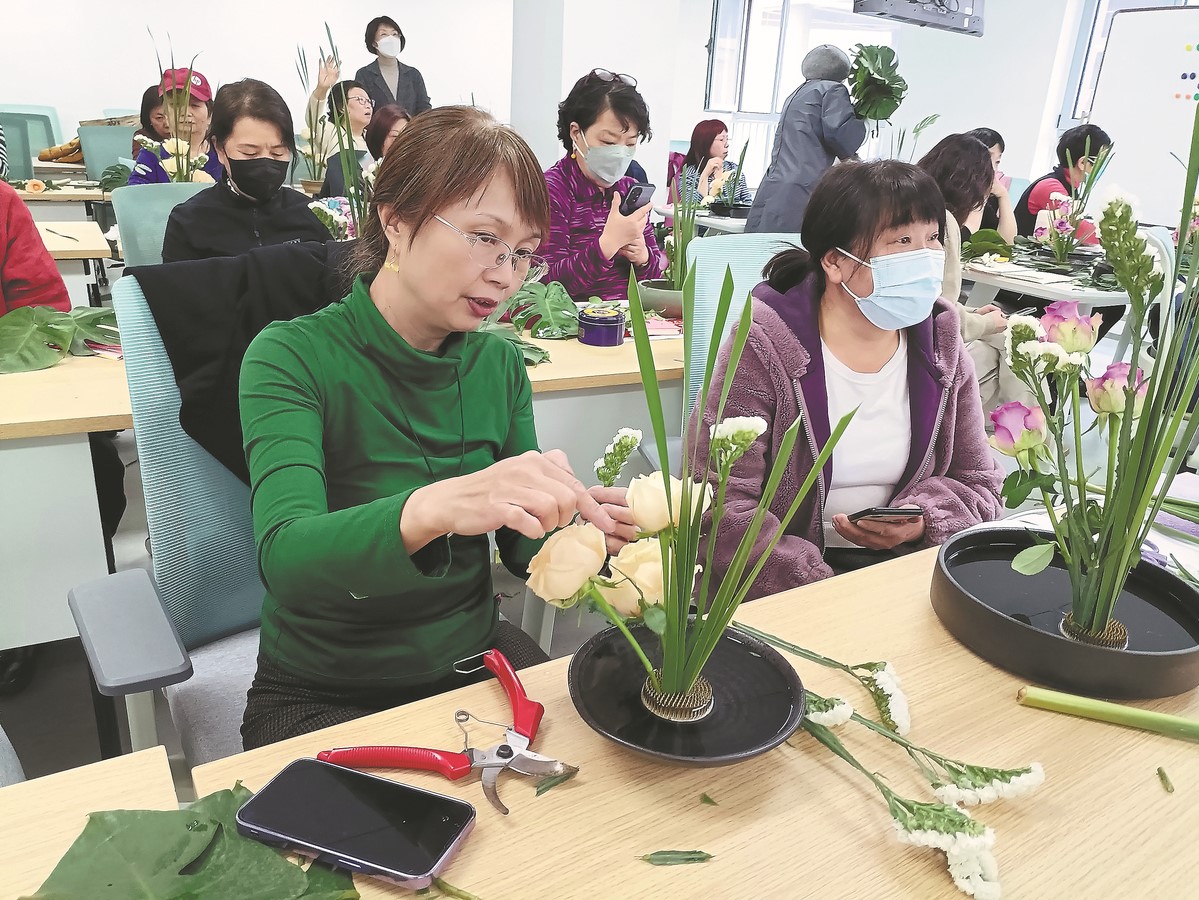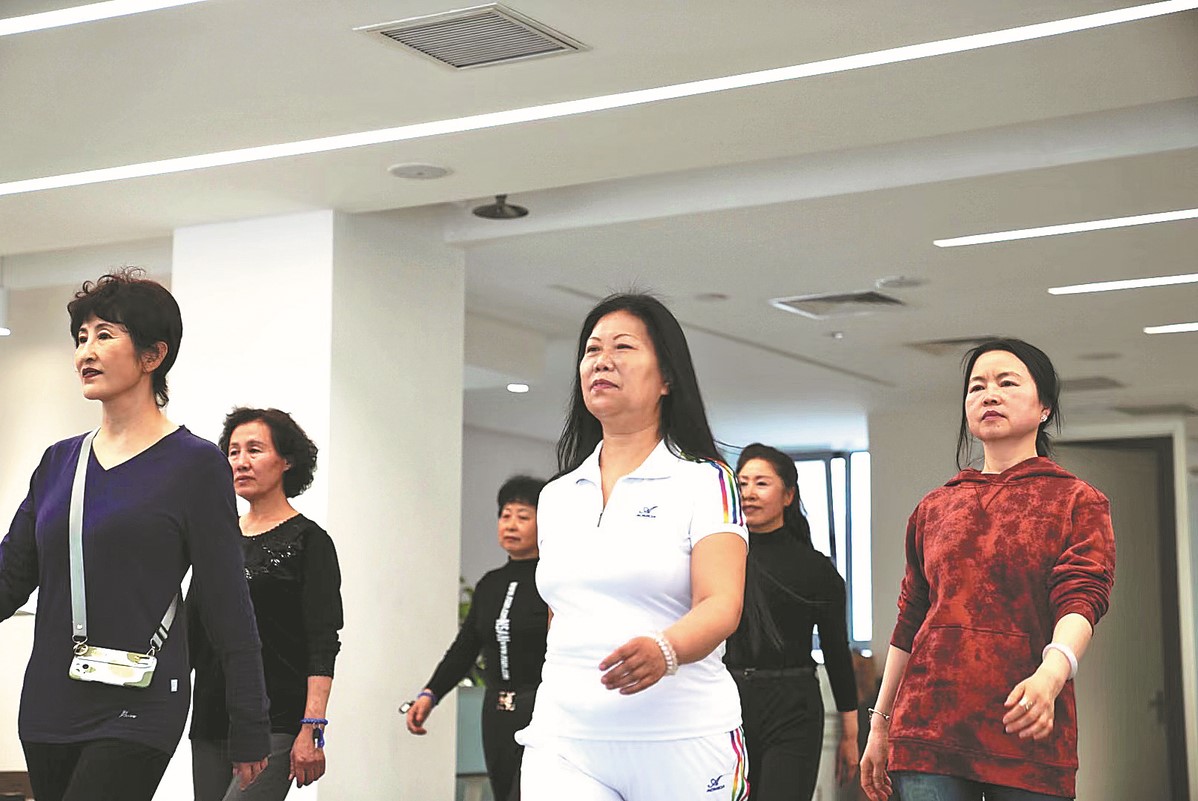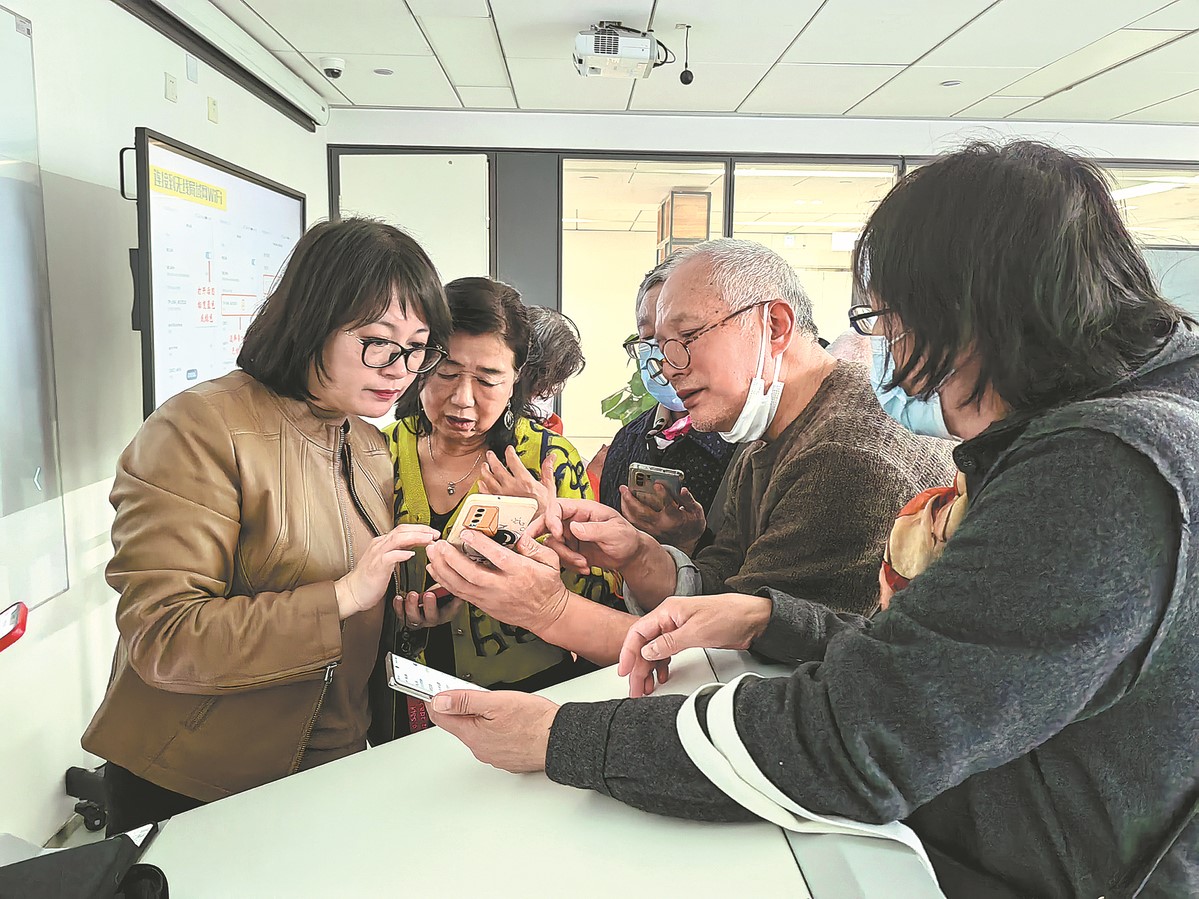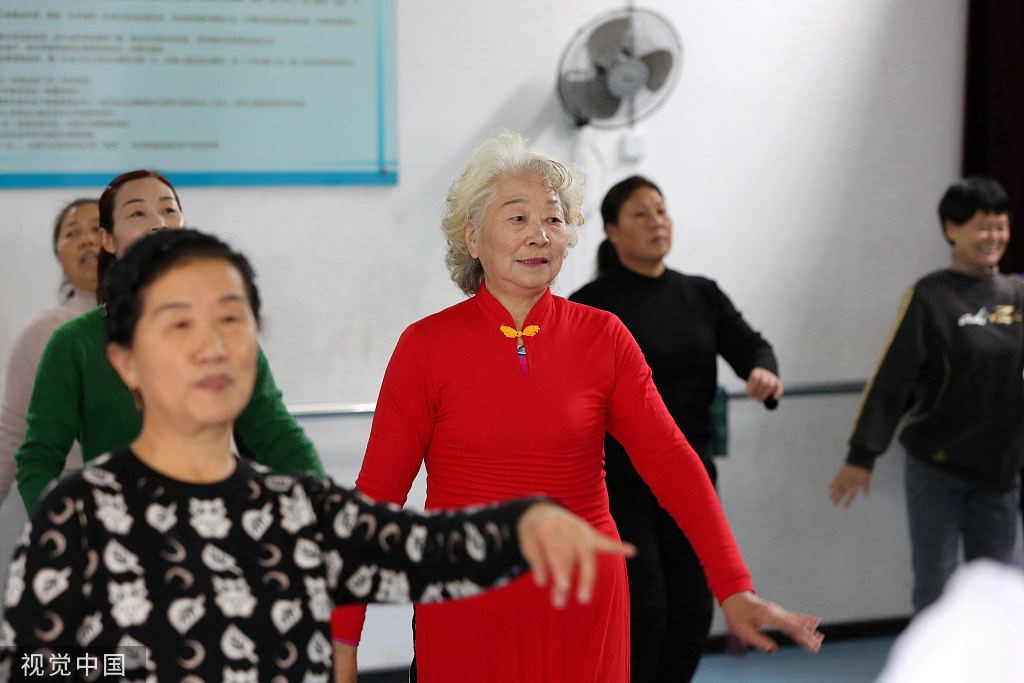 The nation plans to invest in the talents of older people and also help them remain mentally active, Zou Shuo reports.
The nation plans to invest in the talents of older people and also help them remain mentally active, Zou Shuo reports.
After the Seniors University of China was formally established in Beijing last month, Li Jing was among the first students to take a course at the national-level facility.


Students study flower arranging techniques during a class. [Photo/China Daily]
On March 21, the 64-year-old enrolled to study recitation techniques, and she said she is very satisfied with the course.
"I hope to learn some techniques to make my voice more rhythmical and pleasing to the ear," she said.
"More importantly, I was inspired when the teachers taught us that the key to recitation is to understand the meaning of the essay and convey the emotions with the voice."
She also wants to take courses on dance and tai chi. "Older people must continue learning and exercising regularly to ensure that they remain active, both mentally and physically," she said.
The Seniors University of China, which was officially inaugurated on March 3, is under the management of the Open University of China.
Huai Jinpeng, minister of education, said the school's establishment is a concrete measure to address China's aging population and also an important milestone in the reform and development of education for older people.
The inauguration of the new university is part of China's efforts to promote lifelong education, advance the building of a learning society, provide seniors with opportunities to further their own pursuits and studies, and enjoy themselves, Huai said.
Li retired nine years ago, and since then she has taken courses on editing short videos at the Open University of China.
She also took part in a modeling course with a private company, which she said was much more expensive than the new school's classes.
"All the courses have enriched my life, and I have also made friends with people who have the same interests," she said.
Liu Caimei, deputy director of the office of the development and management at the seniors university, said the Open University of China established a branch for elderly education in January 2015, and it has continuously expanded the related resources by leveraging the strengths and immediacy of online education.
By the end of last year, 30 branches of the Open University of China had set up provincial-level senior universities or specialist institutions for older people, and more than 55,000 education and learning centers had been established at the grassroots level for those in the age group, she said.
The Seniors University of China provides students with skills training, cultural inheritance education, social services, scientific research and international exchanges. It also offers both online and offline teaching activities for older people nationwide.
To expand its reach among people in the older age group, it has opened accounts on social media platforms such as WeChat, Weibo and TikTok, Liu said.
The Open University of China also set up a special team for the formation of the seniors university, developed a national public service education platform for older people — consisting of a website, an app and a WeChat mini program that offers 407,000 online courses totaling almost 4 million minutes — and provides high-quality resources to senior educational institutions nationwide, Liu said.
To raise the number of tutors, the seniors university plans to encourage retired teachers, officials and science and technology workers to teach classes, she added.

Participants practice during a walking class for models. [Photo/China Daily]
Enriching, fulfilling
Jing Changying has signed up for singing lessons at the seniors university. In 2021, she took calligraphy and music theory lessons at the Open University of China.
"For me, it is not about how well I learn the courses: I take them to enrich my life and develop my hobbies," the 60-year-old said. The teaching facilities and tutors at the new university are much better than those at private companies, and the tuition fees are much cheaper, she said, adding that she pays just several hundred yuan to do a one-semester course with one class a week.
She retired from the State Grid Corporation of China five years ago, and said she has adjusted to retirement better than many of her peers.
In addition to taking courses, she looks after her parents and a grandchild, practices calligraphy, plays piano and sings, and travels with a friend.
"For our generation, retirement does not necessarily mean staying home and looking after grandchildren, so we pursue more interesting and fulfilling lives," she said.
With China rapidly becoming an older society, the government should provide more policy support for senior universities so more older people across the country can access cheaper, higher-quality education to spice up their retired lives, she added.
Liu said there are more than 267 million seniors in China, and that number is expected to rise as the 1960s baby boom generation ages.
Although senior education has made progress in China, there is still an unequal balance between urban and rural areas, and teachers and teaching resources, while funding is inadequate, and the resources cannot meet the demand for innovative education, she said.
By leveraging the resources of the Open University of China, the establishment of the seniors university can quickly formulate an elderly education service that covers both urban and rural areas, and is open, flexible and standardized, Liu said.

A teacher (left) answers questions after a smartphone class. [Photo/China Daily]
An important platform
The senior university is an important platform to help older people improve their cultural proficiency, engage in social life, realize their dreams and make a difference, she added.
According to the university, people age 50 or older can register online to become students and enjoy free internet-based courses.
They can access the platform via the website lndx.edu.cn, a related app and the school's WeChat mini program.
The university also provides offline courses. At one of its campuses in Beijing's Haidian district, the new semester officially opened on March 20, with more than 800 people signing up for 44 courses, Liu said.
According to a document released in August by the State Council, China's Cabinet, the country aims to establish at least one university for seniors in every county-level region by 2025. Liu said there is still a long way to go to reach that goal and meet the demand for education from the country's large senior population.
Currently, the seniors university and other schools for older people offer affordable education, and some of the courses are free as a result of subsidies offered by local governments, she said.
She added that it is very important to tap into the advantages of online education as more seniors have become accustomed to using the internet in their daily lives, while online education was used widely and successfully during the COVID-19 epidemic.
Meanwhile, social interaction is also very important for seniors, so elderly education should combine online and offline classes, which is the most suitable approach for older people, she said.

Elderly people learn dancing at a university for senior citizens in Xiangyang, Hubei province, October 2018. [Photo/VCG]
Overcoming difficulties
After studying music and calligraphy, Jia Yueling has started taking courses on editing short videos at the seniors university.
The 63-year-old said it was difficult for him to get used to retired life at the beginning because he no longer had a fixed schedule. In response, he started finding things to occupy his time.
Jia is very good at whistling, so he often makes videos of himself whistling songs. He also takes videos when he travels with friends, so he hopes the video-editing course will help improve the quality of the films he shoots.
"I want to know the right angle for shooting, and how to make the videos more beautiful," he said, adding that he often posts his work on WeChat and Douyin.
Huai, the education minister, said China will promote the sharing of quality resources and extend education services to towns, villages and communities to turn the seniors university into a school without boundaries between communities, campuses and society.
Colleges and universities, as well as vocational colleges, are required to provide services tailored to elderly education, he said, adding that China encourages primary and secondary schools to take part in these educational initiatives by providing sports and cultural facilities, and also supports teachers — both working and retired — who devote themselves to this undertaking.
Liu said she hopes the Seniors University of China can become an innovative, open and influential school for older people and also become their home for knowledge, enrichment and entertainment.
"We believe that more seniors can enjoy high-quality education near their homes, so their sense of achievement and happiness will improve and they can enjoy life by learning and making progress constantly," she added.
Reprinted from China Daily
https://enapp.chinadaily.com.cn/a/202304/05/AP642cbbffa3103705a5f436c8.html